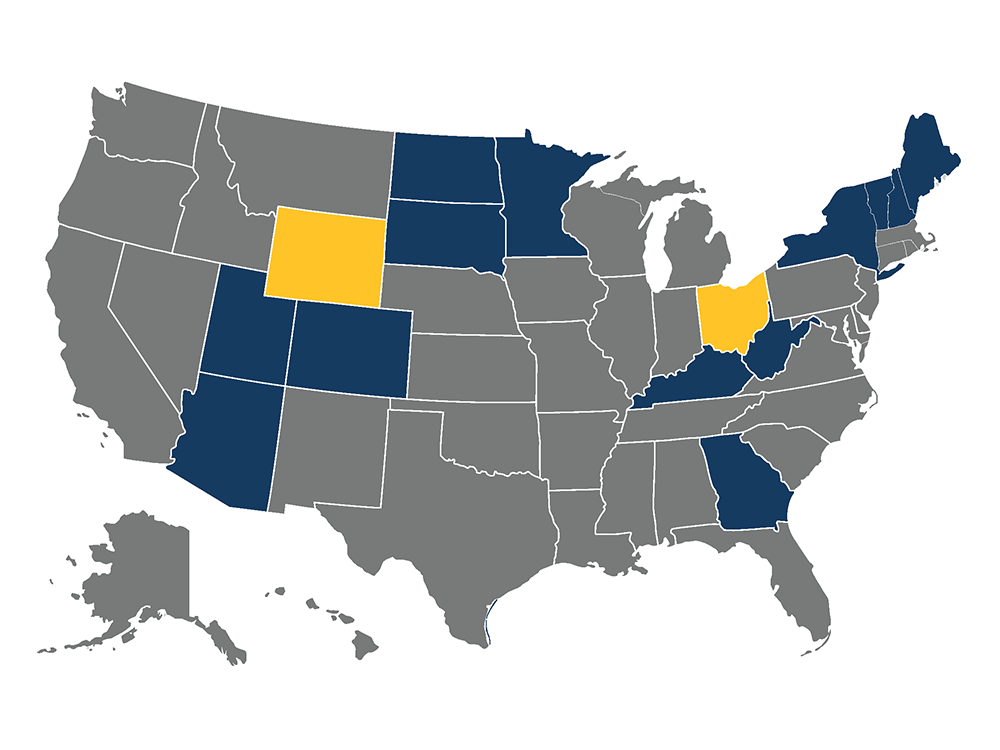2025 Project SCOPE ECHO Cohort:
Mondays, weekly, 1:00pm-2:30pm MT
Register for the Spring 2025 Project SCOPE ECHO Series (Registration is through Cincinnati Children's Hospital)
PTSB, STARS, UW Graduate Credit, and Certificates of Attendance are available for
Wyoming participants.
- February 24: Neonatal Abstinence Syndrome/Neonatal Opioid Withdrawal Syndrome + Developmental Outcomes
- March 3: Challenging Behavior and Evidence Based Practices for Attention Concerns
- March 10: Educational and Academic Strategies
- March 17: Language and Speech Development and Executive Functioning Concerns
- March 24: Sensory, Executive Functioning, and Self-Regulation Strategies
- March 31: Peer Recovery Services and Supporting Families
- April 7: Considering Medication: The What and the Why
- April 14: Childhood Traumatic Stress and Trauma-Informed Strategies
Register for the Spring 2025 Series

2024 Project SCOPE ECHO Cohort:
Session Recordings:
- March 25: Developmental Outcomes
- April 1: Education and Academic Concerns
- April 15: Behavioral Concerns
- April 22: Language Development
- April 29: Sensory Processing
- May 6: The Opioid Crisis, Peer Support, and Addiction Treatment
Project SCOPE: Supporting Children of the OPioid Epidemic
Project SCOPE has been a national training initiative intended to build nationwide provider capacity and confidence in applying evidence-based practices in screening, monitoring, and interdisciplinary support for children and families diagnosed with Neonatal Abstinence Syndrome (NAS), Neonatal Opioid Withdrawal Syndrome (NOWS), or who are suspected of being impacted by opioid use, trauma, or related exposure.
The Wyoming Institute for Disabilities partnered with the Nisonger Center at The Ohio State University and the University of Cincinnati Center for Excellence in Developmental Disabilities for this project. This initiative was built upon the effective ECHO virtual training model and developed for the 2018-2019 pilot that was supported by the Administration on Intellectual and Developmental Disabilities through the Association of University Centers on Disabilities.
Project SCOPE Reach
The goal of the national training initiative was to increase the capacity of the states and communities most impacted by the opioid crisis to support children with NAS, trauma and other related exposure and their families effectively. Through the national training, 14 sites were trained in replicating ECHO SCOPE in their states. Between 2019-2022 there have been 35 ECHO SCOPE implementations reaching 9,391 participants from 25 states, across 274 sessions for a total of 383 training and mentorship hours. After 3 years, 141,085 children were impacted by ECHO SCOPE.
Outcomes
Over the three-year period, implementation sites conducted evaluations for each ECHO SCOPE session. These evaluations were designed to measure 4 components: core knowledge and skills, reach, ability to implement knowledge and skills, and intention to implement.
Most participants reported improvement in their
-
knowledge (98%)
-
motivation (97%)
-
quality of practice (92%)
-
skills (95%)
Participants (84%) reported that they had implemented new practices. Aditionally, participants (92%) reported that they were likely or extremely likely to continue using new knowledge and/or skills.
Related to professional development, participants (85%) felt that attending sessions helped them to feel more connected to other professionals, and they (90%) agreed that they had expanded their professional network by participating.

